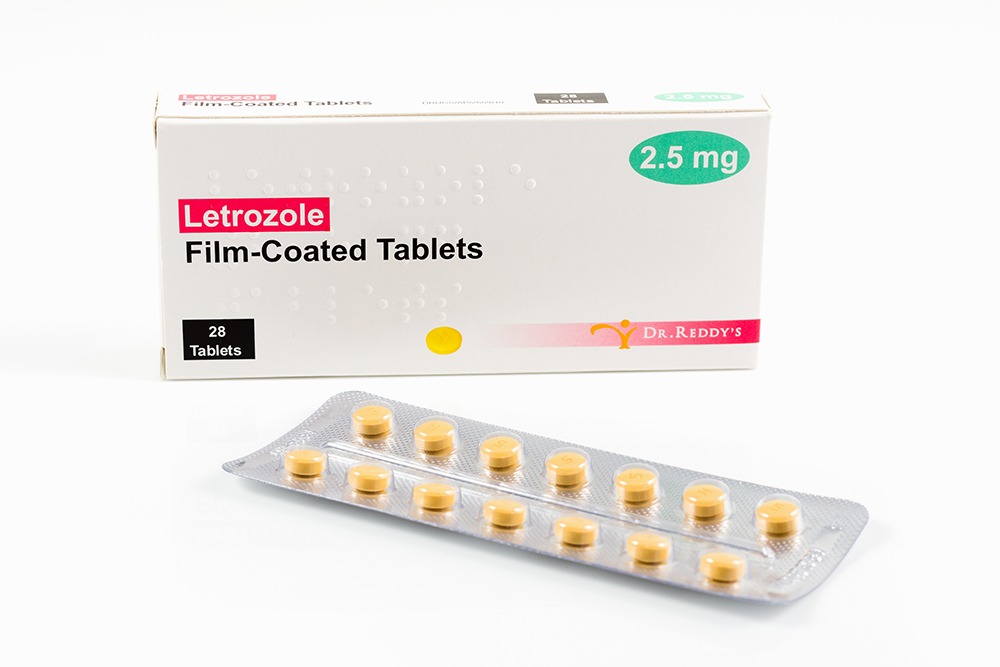While many people know about common performance-enhancing tactics like anabolic agents and blood doping, it may be surprising to learn that even substances in prescription medications used to fight breast cancer, like letrozole, may be abused to enhance performance.
Here’s what athletes subject to anti-doping rules need to know about letrozole and competing clean.
1. What is letrozole?
 Letrozole is an aromatase inhibitor, meaning that it blocks an enzyme responsible for a key step in the formation of estrogens. More specifically, the enzyme aromatase is responsible for the conversion of androgens (e.g., testosterone) into estrogens. Letrozole inhibits this process, which reduces the amount of estrogen in the body.
Letrozole is an aromatase inhibitor, meaning that it blocks an enzyme responsible for a key step in the formation of estrogens. More specifically, the enzyme aromatase is responsible for the conversion of androgens (e.g., testosterone) into estrogens. Letrozole inhibits this process, which reduces the amount of estrogen in the body.
Letrozole is in medications used to fight estrogen-dependent breast cancer in women. By decreasing the amount of estrogen in the body, letrozole can slow or stop the growth of some types of breast cancer cells that need estrogen to grow.
Legally, letrozole is only available with a doctor’s prescription. However, there are websites that illegally sell letrozole and other performance-enhancing drugs.
2. How is letrozole performance enhancing?
Athletes who abuse anabolic steroids might use an aromatase inhibitor like letrozole to prevent the formation of estrogens, and therefore reduce or prevent the unwanted and feminizing effects of anabolic steroid use. These side effects include male breast development (gynecomastia), water retention, and belly fat. In addition, male athletes may use abuse aromatase inhibitors like letrozole to boost their own natural levels of testosterone by preventing its breakdown.
3. What are the side effects to using letrozole?
The use of letrozole is associated with many side effects, including an increase in cholesterol levels, a decrease in bone density, hot flashes, night sweats, nausea and vomiting, loss of appetite, constipation, diarrhea and heartburn, muscle and joint pain, fatigue and dizziness, swelling of hands, feet, ankles and lower legs, and difficulty sleeping.
4. Is letrozole prohibited in sport?
Yes, letrozole is specifically listed as prohibited at all times (both in and out-of-competition) in the category of Hormone and Metabolic Modulators on the World Anti-Doping Agency Prohibited List.
5. Can I get a Therapeutic Use Exemption (TUE) for letrozole?
Yes, for athletes with a specific therapeutic need to treat certain medical conditions, such as breast cancer, it is possible to get a TUE. Here is more information about applying for a TUE.
6. Do dietary supplements contain letrozole?
Letrozole is a powerful drug that cannot be legally included and/or marketed as an ingredient in dietary supplements. USADA is not currently aware of any instances of a dietary supplement contaminated with letrozole. However, the use of dietary supplements is always at the athlete’s own risk. Please read USADA’s recommendation on how to reduce the risk of testing positive from dietary supplements.
More questions?
For questions about specific products, substances, and methods, contact USADA’s Drug Reference Line at drugreference@USADA.org or call (719) 785-2000, option 2.
Read more Spirit of Sport blog posts



